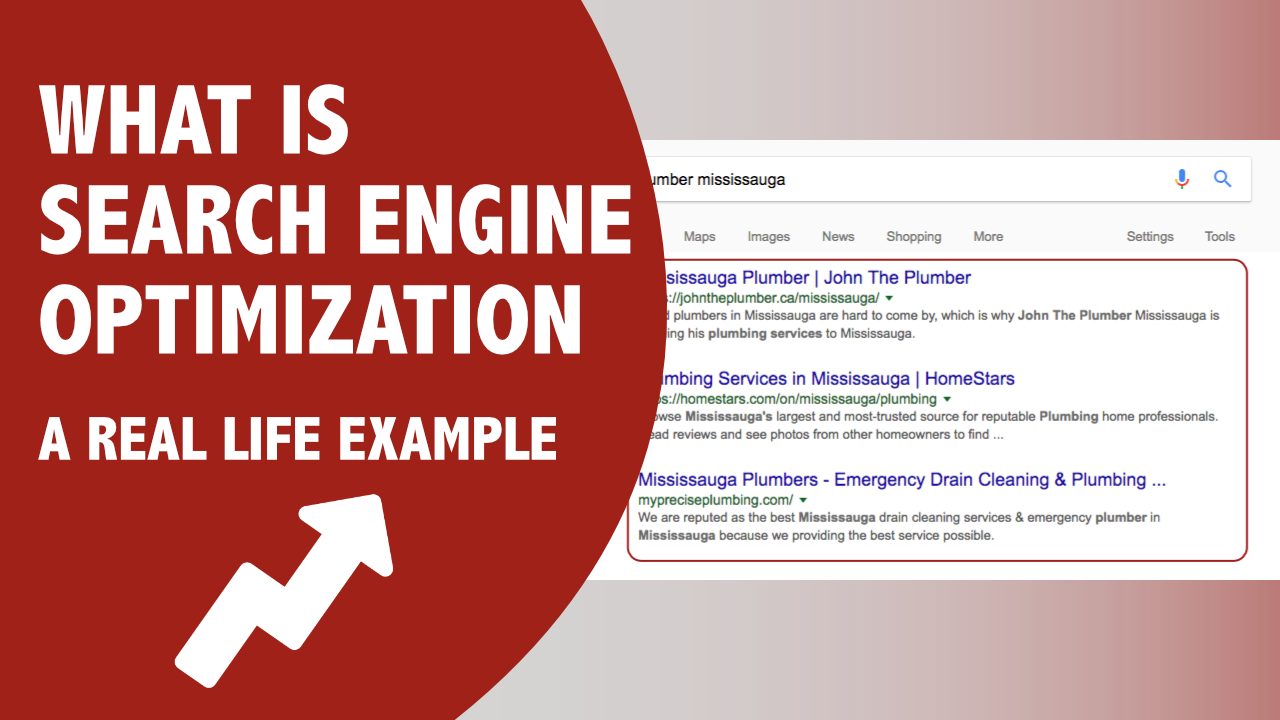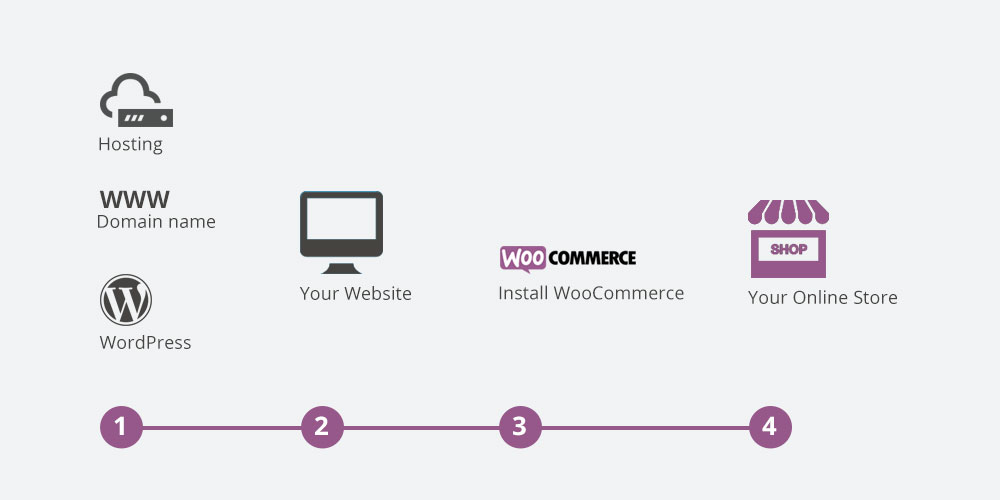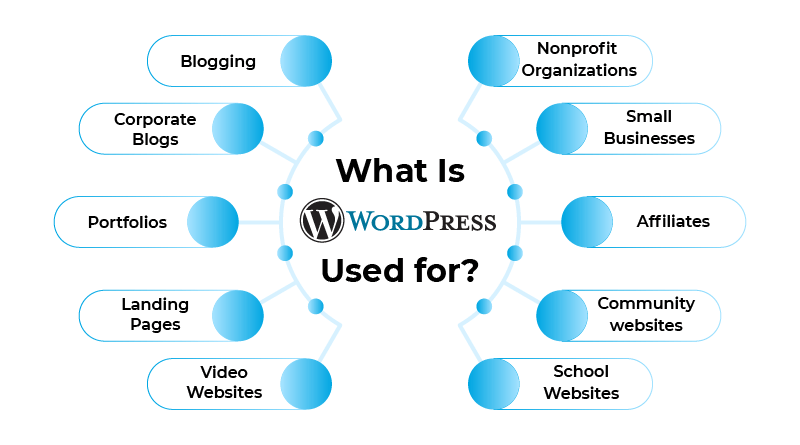In today’s digital age, nearly everyone is online. With billions of searches conducted daily, businesses…

Why All Businesses Should Have a Website
In today’s digital landscape, having a website is no longer optional – it’s a fundamental requirement for businesses of all sizes. Whether you’re a local bakery, a tech startup, or a multinational corporation, establishing an online presence through a well-designed website is crucial. A website not only provides a platform for showcasing your products and services but also serves as a critical tool for reaching a wider audience, enhancing your brand image, and driving business growth. All businesses should have a website, and here’s why.
1. Credibility and Professionalism
When potential customers search for your business, they expect to find a website. A professional website conveys credibility and legitimacy. It’s like having a polished storefront that’s open 24/7. Without a website, you risk appearing outdated or less serious about your offerings.
- First Impressions Matter: The first impression of your business is often formed online. A professional, well-designed website assures visitors that you are credible and trustworthy.
- About Us and Testimonials: Include an “About Us” section to tell your story and build a connection with your audience. Customer testimonials and reviews can further enhance your credibility.
- Professional Email Addresses: A custom domain email (e.g., yourname@yourbusiness.com) looks more professional than a generic one (e.g., yourname@gmail.com) and adds another layer of credibility.
2. Reach a Global Audience
The internet knows no boundaries. With a website, your business can reach customers beyond your local area. Whether you sell handmade crafts or provide consulting services, having a website allows you to tap into a global market. All businesses should have a website to expand their reach and cater to a diverse audience.
- Time Zone Independence: A website allows you to reach potential customers across different time zones, expanding your market beyond local boundaries.
- Language Options: Consider offering your website in multiple languages to cater to international customers and improve accessibility.
- Shipping and Services: If you offer products or services that can be delivered or provided remotely, your website becomes a powerful tool for global business expansion.
3. Showcase Your Products and Services
A website serves as a digital catalog. You can display your products, describe your services, and highlight their benefits. High-quality images, detailed descriptions, and customer testimonials create a compelling narrative that encourages visitors to engage with your brand. This is another reason why all businesses should have a website.
- Visual Appeal: High-quality images and videos can significantly enhance the appeal of your products and services.
- Detailed Descriptions: Provide detailed descriptions, including specifications, benefits, and uses of your products or services.
- Customer Testimonials: Positive reviews and testimonials can build trust and influence purchasing decisions.
4. Boost Search Engine Visibility
Search engines love websites. When someone searches for relevant keywords related to your business, having a website increases your chances of appearing in search results. Implementing search engine optimization (SEO) techniques ensures that your site ranks higher and attracts organic traffic. To reach more customers, all businesses should have a website optimized for search engines.
- Keyword Research: Use relevant keywords throughout your website content to improve search engine rankings.
- Meta Tags and Descriptions: Optimize meta tags, titles, and descriptions to make your content more searchable.
- Backlinks: Build quality backlinks to improve your website’s authority and search engine ranking.
5. Establish Brand Identity
Your website is an extension of your brand. Use consistent colors, fonts, and messaging to reinforce your identity. Incorporate your logo and tell your brand story. When visitors encounter a cohesive brand experience, they’re more likely to remember and trust your business. All businesses should have a website to effectively establish and communicate their brand identity.
- Consistent Branding: Ensure that your website reflects your brand’s colors, fonts, and style consistently across all pages.
- Storytelling: Use your website to tell your brand’s story, mission, and values, creating an emotional connection with your audience.
- Interactive Elements: Incorporate interactive elements like videos, infographics, and animations to engage visitors and convey your brand message effectively.
6. Engage with Customers
A website provides various ways to engage with your audience. Include contact forms, live chat, and social media links. Regularly update your blog with relevant content – industry insights, how-to guides, or success stories. Interaction builds relationships and keeps visitors coming back. All businesses should have a website to maintain continuous engagement with their customers.
- Contact Forms: Simplify the process for customers to reach out to you with inquiries, feedback, or support requests.
- Live Chat: Offer real-time assistance through live chat, improving customer satisfaction and increasing conversion rates.
- Social Media Integration: Link to your social media profiles to extend your reach and encourage more interaction.
- Blog Content: Maintain a blog with regular updates on industry trends, company news, and valuable insights to keep your audience engaged and informed.
7. Drive Conversions
Whether your goal is to sell products, generate leads, or encourage sign-ups, a website facilitates conversions. Clear calls-to-action (CTAs), persuasive landing pages, and seamless checkout processes guide visitors toward taking the desired action. Don’t forget to include your contact information! All businesses should have a website to effectively drive conversions and achieve business goals.
- Effective CTAs: Use clear and compelling calls-to-action to guide visitors towards taking the next step, such as making a purchase or signing up for a newsletter.
- Landing Pages: Create targeted landing pages for specific campaigns or products to drive conversions.
- Seamless Checkout: Ensure that the checkout process is straightforward, secure, and user-friendly to reduce cart abandonment rates.
8. Monitor Analytics and Improve
Websites offer valuable insights through analytics tools. Track user behavior, conversion rates, and popular pages. Adjust your strategies based on data – optimize underperforming pages, refine your content, and enhance user experience. A data-driven approach leads to continuous improvement. All businesses should have a website to monitor performance and make informed decisions.
- User Behavior: Analyze how visitors navigate your site, what pages they visit, and where they drop off to identify areas for improvement.
- Conversion Tracking: Monitor conversion rates for different CTAs and landing pages to measure the effectiveness of your marketing efforts.
- Content Performance: Evaluate which content resonates most with your audience and tailor future content accordingly.
- A/B Testing: Conduct A/B tests to compare different versions of pages or elements and determine which performs better.
9. Adaptability and Scalability
As your business evolves, so can your website. Add new features, expand product lines, or integrate e-commerce functionality. A scalable website grows with your business, accommodating changing needs and technological advancements. All businesses should have a website that can adapt and scale as they grow.
- Modular Design: Build your website with a modular design that allows you to easily add or remove features as needed.
- E-commerce Integration: Integrate e-commerce functionality to sell products directly from your website, streamlining the purchasing process.
- Content Management Systems (CMS): Use a CMS like WordPress or Shopify to manage and update your website content effortlessly as your business grows.
10. Introduce dnetid.com: Your Website Solution
Now, let’s talk about dnetid.com. This innovative platform offers hassle-free website creation. Here’s why you should consider it:
User-Friendly Interface
Even if you’re not tech-savvy, dnetid.com simplifies the process. Drag-and-drop elements, customize templates, and create a stunning website without coding.
- Drag-and-Drop Builder: Easily customize your website’s layout with a user-friendly drag-and-drop builder.
- Customizable Templates: Choose from a variety of templates designed for different industries and personalize them to fit your brand.
Automated Content Suggestions
Like a helpful assistant, dnetid.com suggests relevant content as you build your site. Say goodbye to writer’s block – let the platform guide you.
- Content Generator: Receive automated suggestions for text, images, and layout based on your industry and audience.
- SEO Optimization: Get tips on optimizing your content for search engines to improve your site’s visibility.
Privacy and Security
Your data is safe with dnetid.com. It prioritizes privacy and ensures that your information remains confidential.
- Data Protection: Benefit from robust data protection measures, including encryption and regular security audits.
- Compliance: Ensure your website complies with privacy regulations like GDPR and CCPA, protecting both your business and your customers.
Conclusion: A Strategic Investment
In conclusion, having a website is no longer a luxury; it’s a strategic investment. Whether you choose dnetid.com or another platform, prioritize creating a professional online presence. Remember, your website is often the first interaction potential customers have with your brand. Make it count!
A well-designed website enhances your credibility, expands your reach, showcases your offerings, boosts your SEO, and engages your audience. It drives conversions, provides valuable insights, and adapts to your business’s growth. Embrace the digital age and build a website that sets you apart from the competition. All businesses should have a website to thrive in today’s competitive market.



